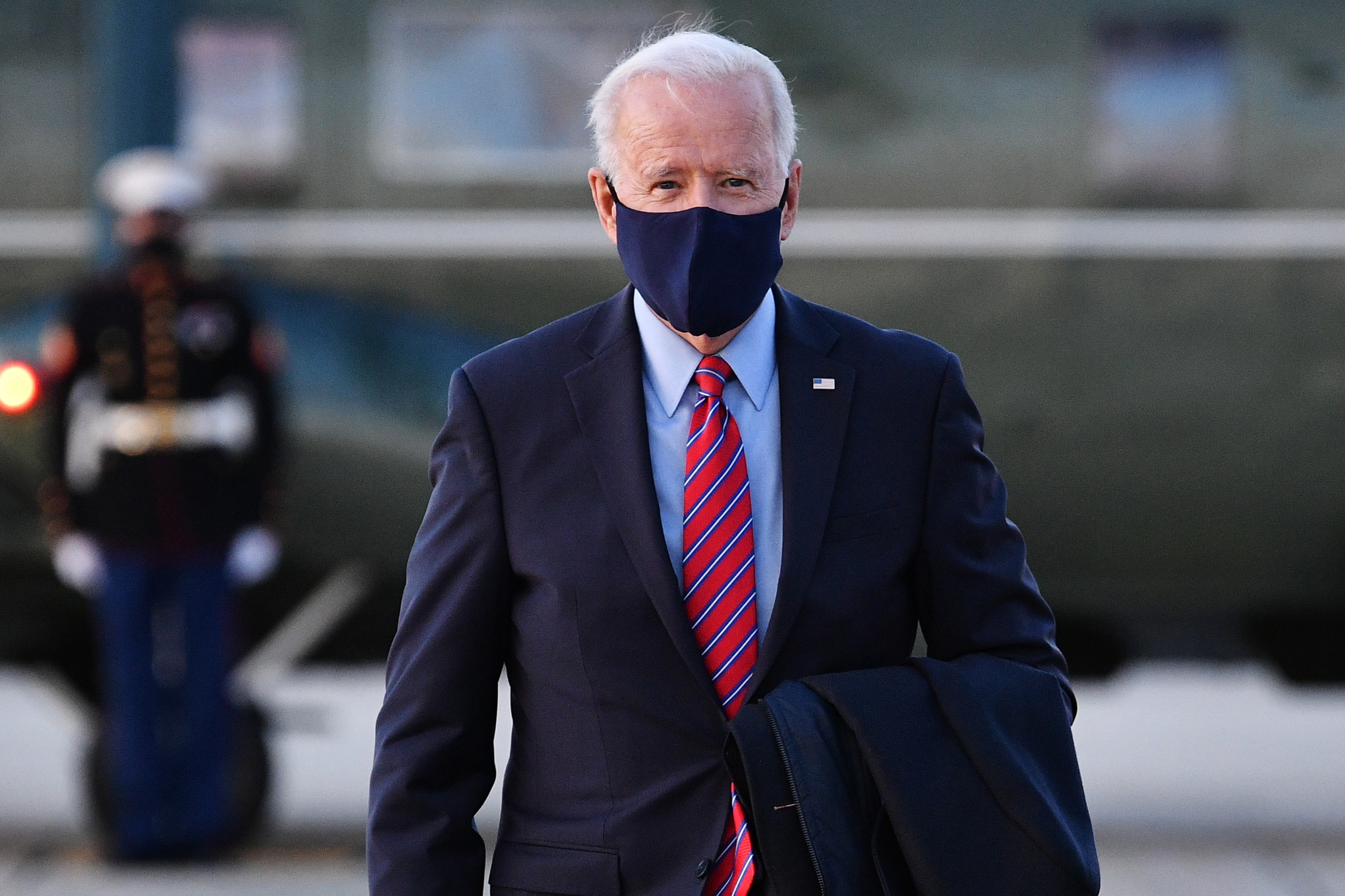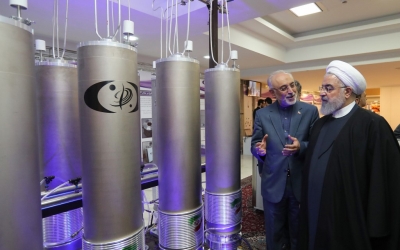Joe Biden says no lifting of Iran sanctions before talks

US President Joe Biden said he would not lift sanctions against Iran until the latter honoured its commitments to the 2015 nuclear deal, in an interview broadcast on Sunday.
Asked by CBS about the possibility of lifting the sanctions in order to convince Tehran to return to the negotiating table, Biden replied: "No."
He also nodded affirmatively when asked whether Iran would need to "stop enriching uranium first".
His comments come shortly after Iran's Supreme Leader Ali Khamenei said the US would have to lift sanctions on Iran before the country would return to the deal.
New MEE newsletter: Jerusalem Dispatch
Sign up to get the latest insights and analysis on Israel-Palestine, alongside Turkey Unpacked and other MEE newsletters
"If they want Iran to return to its commitments… America must completely lift sanctions, and not just in words or on paper," Khamenei said in a televised speech to air force commanders on Sunday.
Biden, who took office last month, previously said that if Tehran returned to strict compliance with the nuclear pact, Washington would follow suit and use that as a springboard to a broader agreement that might restrict Iran's missile development and regional activities.
The then US president Donald Trump exited the nuclear accord between Iran and six powers in 2018 and reimposed sanctions on Tehran.
Iran has breached the deal in a step-by-step response to Trump's "maximum pressure" policy, but it has repeatedly said it could quickly reverse those violations if US sanctions are removed.
On Saturday, Iran's foreign minister, Mohammad Javad Zarif, urged Washington to act fast to return to the 2015 nuclear accord, pointing out that legislation passed by parliament forces the government to harden its nuclear stance if US sanctions are not eased by 21 February.
Zarif also referred to elections in Iran in June. If a hardline president is elected, this could further jeopardise the deal.
"Time is running out for the Americans, both because of the parliament bill and the election atmosphere that will follow the Iranian New Year," Zarif said in an interview with Hamshahri newspaper. Iran's new year begins on 21 March.
Middle East Eye delivers independent and unrivalled coverage and analysis of the Middle East, North Africa and beyond. To learn more about republishing this content and the associated fees, please fill out this form. More about MEE can be found here.


